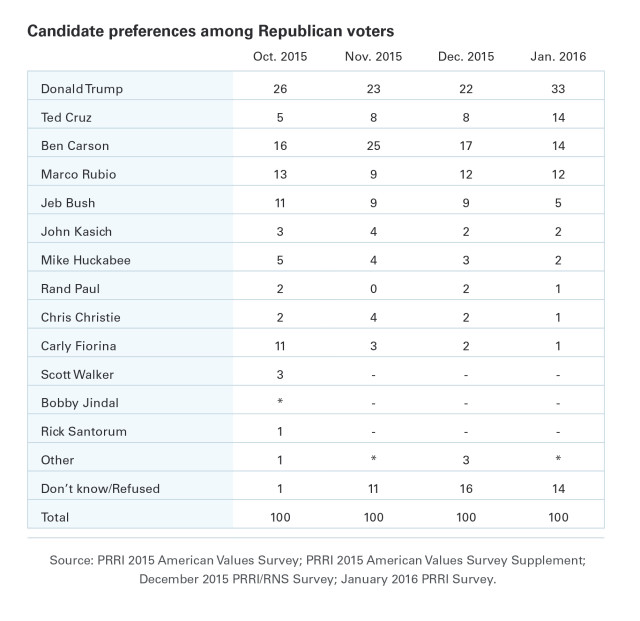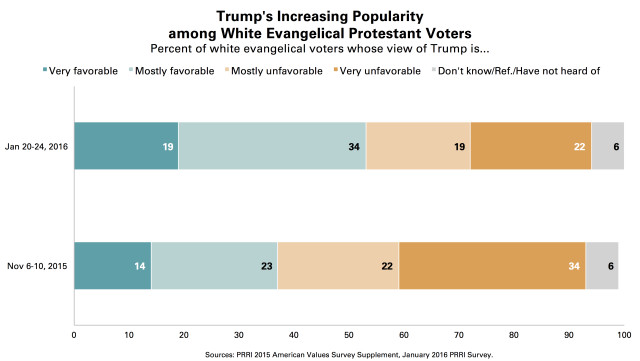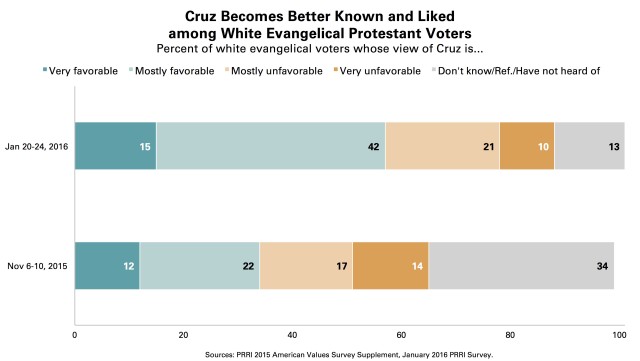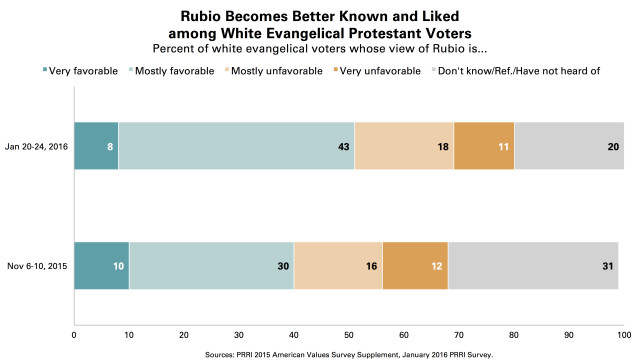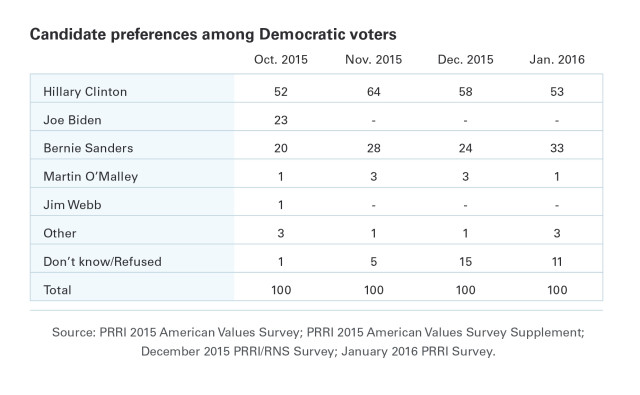I. Trump Increases Lead While Democratic Race Tightens
Heading down the homestretch to the Iowa caucuses, Donald Trump has increased his advantage over his Republican primary opponents among self-reported Republican registered voters nationwide. One-third (33%) of Republican voters say they would prefer Trump to be the nominee, a ten percentage point increase over his level of support in November 2015, and more than double that of those expressing support for Ted Cruz (14%), Ben Carson (14%), and Marco Rubio (12%). The remaining GOP contenders demonstrate very little support among Republican voters, including Jeb Bush (5%), John Kasich (2%), Mike Huckabee (2%), Rand Paul (1%), Chris Christie (1%), and Carly Fiorina (1%).
The Democratic primary race has tightened considerably since November 2015, although Hillary Clinton retains a sizable advantage over her closest competitor, Bernie Sanders. A majority (53%) of Democratic voters say they would like to see Clinton as the Democratic nominee, down from 64% in November 2015. Sanders has witnessed a more modest increase in support over the same time period. One-third (33%) of Democratic voters say they would prefer that Sanders win the nomination, compared to 28% a few months earlier. Today, four percent of Democratic voters say they prefer some other candidate, and 11% of Democratic voters express no opinion.
II. White Evangelical Protestant Voters Warm to Trump
Since November 2015, white evangelical Protestant voters have become more amiable towards Trump. A majority (53%) of white evangelical Protestant voters express a favorable view of Trump today, up from 37% last November. Currently, only about four in ten (41%) white evangelical Protestant voters express a negative view of Trump, down from 56% in November.
White evangelical Protestant voters are also viewing Cruz and Rubio more positively, partly because these voters have come to know the two candidates better. A slim majority (51%) of white evangelical Protestant voters express a favorable view of Rubio, compared to 40% who did so last November. Cruz has benefitted from an even greater increase in positive views. Nearly six in ten (57%) white evangelical Protestant voters view Cruz favorably, while only 34% reported having favorable views of him in late 2015.
All three candidates enjoy the same level of favorability among GOP voters. More than six in ten Republican voters express a positive opinion of Cruz (65%), Rubio (62%), and Trump (62%). Notably, Cruz has become much more popular among Republican voters over the last few months, with fewer than half (47%) expressing a favorable view of him in November 2015.
III. Clinton’s Enduring Advantage Among Non-White Voters
Among non-white voters, an important Democratic constituency, Clinton is viewed more favorably than Sanders. Six in ten (60%) non-white voters express a positive view of Clinton, including 32% who have a very favorable view of her. Fewer than half (48%) of non-white voters regard Sanders favorably, and only 12% view him very favorably.
Both Clinton and Sanders are well regarded among Democratic voters. Nearly eight in ten (78%) Democratic voters have a favorable view of Clinton while close to two-thirds (65%) express a positive opinion of Sanders.
Recommended citation:
Jones, Robert P., and Daniel Cox. “Trump Gains Ground with White Evangelical Voters; Solidifies Lead with Republican Voters Nationwide.” PRRI. 2016. http://www.prri.org/research/poll-trump-white-evangelicals-republican-primary-nomination/.
